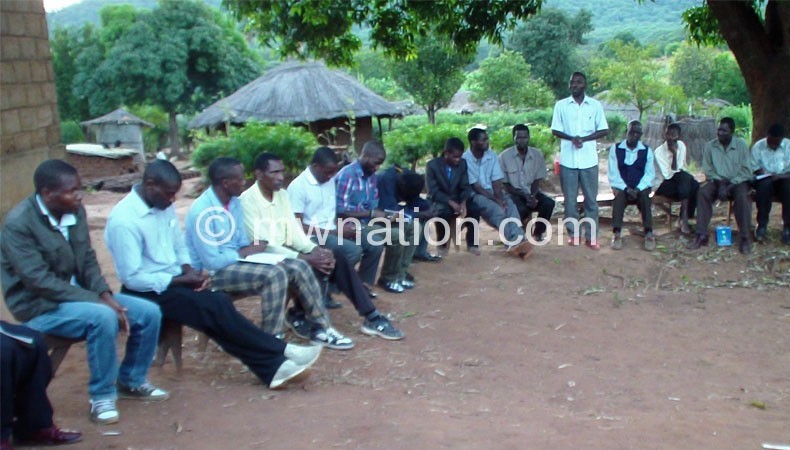Enhancing people’s ability to engage leaders
Esnath Chikuni, 33, is distraught. She feels like a can of a soft drink which is discarded upon drinking its contents.
“Politicians have used me for too long,” she laments.
Chikuni, who comes from Eneko Village in sub-Traditional Authority (S-T/A) Govati in Mwanza, has seen politicians capitalise on challenges of a community to lure prospective voters.

She shudders to remember the number of developmental projects politicians gunning for various positions have promised people in her community since 1994, but all remain unfulfilled.
“Prior to the 1994 General Elections, we were promised schools with adequate teaching and learning materials, safe and clean drinking water and a good road network.
“But 20 years down the line, we are struggling to get even a single borehole for our area. Our schools are in bad shape and the road network in Mwanza is poor,” explains Chikuni.
Hundreds of kilometres away in Mzimba, Lawrence Chisambi, 38, says he is always cautious to celebrate the laying of a foundation stone for development projects by political leaders.
Chisambi says most projects in his area, whose foundation stones were laid soon after the 1994 General Elections, remain unfulfilled. He cites the example of the Jenda-Edingeni Road project, which remained unfulfilled until late 2014 when construction finally took off.
“Since 1994, we have seen each administration coming to lay its own foundation stone on this road; with each promising that construction would start ‘very soon’. It begs the question: Are our leaders serious about fulfilling their campaign promises?” he narrates.
Chisambi emphasises that it is even harder to engage leaders on development issues because politicians are rarely available in their areas after elections.
Group village head (GVH) Mpeni of Mwanza observes that inaccessibility of elected leaders undermines efforts to consolidate democracy and governance; prerequisites for achieving a meaningful social and economic transformation in a country.
Mpeni stresses that constant interaction and sharing of ideas and opinions between leaders and the electorate is critical for consolidating democracy and good governance at the grass roots.
“But since 1994, elected leaders have continuously disregarded fundamental requirements for institutionalising democracy and good governance, thereby denying voters a chance to engage them on pressing issues.
This makes it difficult for the electorate to engage their leaders in social, economic and developmental matters,” he explains.
Mpeni, who is under S-T/A Govati, calls on politicians to be available in their areas.
Mpeni Village Development Committee (VDC) chairperson Maurice Phiri said it is hard for them to formulate development plans in the absence of councillors.
National Initiative for Civic Education (Nice) Trust regional civic education officer (South) Enock Chinkhuntha, deplores the tendency by politicians to love people during campaign time and ignore them once they vote them into positions of leadership.
Chinkhuntha says this behaviour is suicidal to Malawi’s democracy as it discourages people from participating in future elections.
He, however, expresses hope that things could improve if both parties patronised ‘media clinics’, which Nice introduced to enhance engagement between leaders and the electorate.
Chinkhuntha says media clinics bring duty-bearers and people at the grass roots together to discuss various social and economic issues in the presence of journalists.
He said: “Some politicians used to complain that it was costly for them to organise rallies in their respective areas because of the ‘allowance syndrome’ among the constituents. Nice is now assisting in organising the rallies as part of civic educating the masses on various issues.
“Leaders incur no costs for attending media clinics. And they are proving to be effective tools for bringing voters and the elected leaders together on critical issues. However, we are baffled to note that some leaders are shunning these clinics without giving explanations. This is unacceptable in a democracy.”





